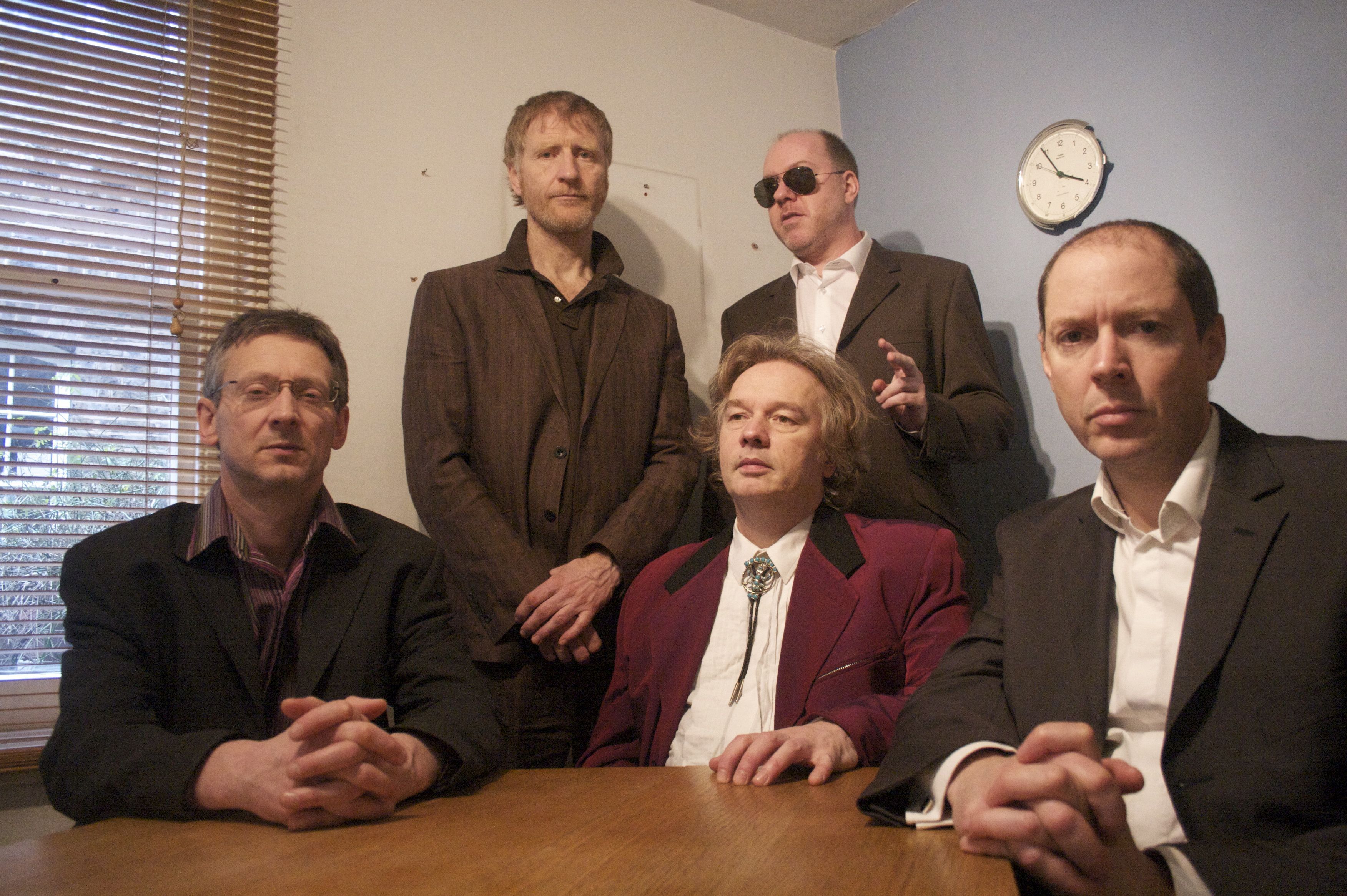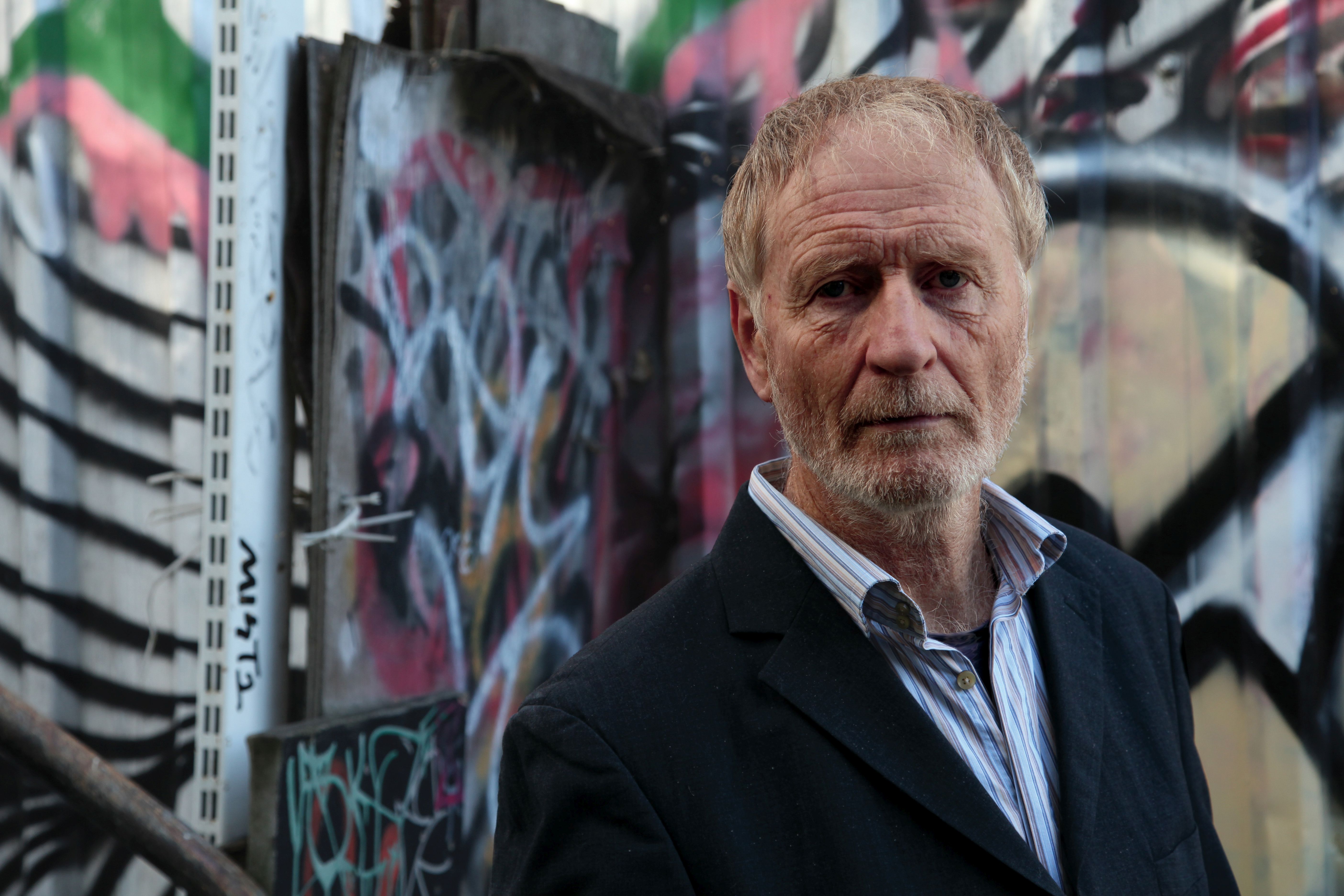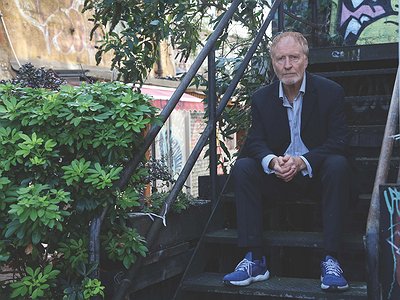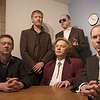Name: Sean O'Hagan aka High Llamas
Nationality: Irish
Occupation: Songwriter, vocalist, producer, arranger
Current Release: The new High Llamas album Hey Panda, featuring Rae Morris Bonnie 'Prince' Billy, is out via Drag City.
Recommendations: Rory Stewart, Politics On the Edge … it's an amazing political memoir charting the disasterous pillaging of the UK by the Conservative government in recent years.
RUNNERBOY, Babee Backwards … simple 2 chord pop. Joyful.
Kev Hopper, White Clouds. I love Kev’s suburban illustrative imaginings. Kev is a great painter who also makes music.
Book: Erin K. Parker, The Secret & The Sacred - Collection of shorts stories. Erin lives in LA and her writing sometimes feels like a gentle breeze.
Magnus Mills, Screwtop Thompson. This collection of short stories might remind you of Flann O’Brien, absurd gentle humour.
[Read our Bonnie 'Prince' Billy interview]
If you enjoyed this High Llamas interview, you can find out more about the band and their music on their official website or via the Drag City homepage.
For a deeper dive, visit our earlier Sean O'Hagan interview. You can also read our conversations with former High Llamas members or O'Hagan collaborators in our Dominic Murcott interview and our Cathal Coughlan interview.
Where does the impulse to create something come from for you? What role do often-quoted sources of inspiration like dreams, other forms of art, personal relationships, politics etc play?
The impulse to creates is a deep set desire to generate personal happiness through the application of your artistic bias, gift, talent (without sounding too self obsessed).
If it’s music, then the moment your hands form a harmonic shape on piano or guitar, then you are sent to that place of gentle work and application. You feel grounded and an unspoken message reminds that this is what you are meant to do.
For you to get started, do there need to be concrete ideas – or what some have called a 'visualisation' of the finished work? What does the balance between planning and chance look like for you?
Chance can most certainly play a part in creating. If you are passing the piano as the aforementioned impulse occurs, you may settle for hours right there and write.
Visualisation happens pretty instantly, as I can hear and see ( the instruments in play) the arrangements in a full singular motion.
I must also mention inspirational music from others, be it passing (radio, documentary, film) or present (a recommendation) or accident (streaming algorithm). These moments can also start the process really quickly.
Is there a preparation phase for your process? Do you require your tools to be laid out in a particular way, for example, do you need to do 'research' or create 'early versions'?
I have no requirement except for a keyboard or guitar, and space, preferably an empty room. A phone to capture memos, paper and pen. That’s it.
Do you have certain rituals to get you into the right mindset for creating? What role do certain foods or stimulants like coffee, lighting, scents, exercise or reading poetry play?
Exercise may well affect the creative process, as an exercised body usually leads to a happy mind.
I do stop writing when hunger creeps up on me, and after eating, my brain clicks into play. As an older person, these basic needs impact so much more abruptly.
What do you start with? And, to quote a question by the great Bruce Duffie: When you come up with a musical idea, have you created the idea or have you discovered the idea?
Bruce Duffie eh?? The interviewer? Well it does not matter if you as a writer have created the idea or subconsciously discovered or borrowed the idea. The reason being, it will most probably lead to the next idea, which will be the lasting creation that will be remembered as the piece.
In Hip Hop, if you go to the sample source of a beat and hear out the full track, it may be a tune that actually leaves little impact on you. The artist, in sampling and creating the new beat, is fundamentally gifting the world with impact that might not have been there before.
The original sone may not have left a moment with us, the new beat may leave us speechless.
High Llamas Interview Image by Steve Brummell
When do the lyrics enter the picture? Where do they come from? Do lyrics need to grow together with the music or can they emerge from a place of their own?
In some instances, lyrics can emerge with the music, usually they will have no meaning and act as fillers. The chord change and melodic reach or fall may require a word shape.
In more usual instances, lyrics happen sometimes a year after a song has landed. So in this instance, the lyric is an instinctive reaction to being reacquainted with an old tune.
I personally love a lyric that emerges so completely off message, but thrills in its oddness. That’s real class.
What makes lyrics good in your opinion? What are your own ambitions and challenges in this regard?
I regard my strength as being an arranger on melodic writer. I have always struggles with words, which goes back to my awful experience at school and my failures in exam hall.
However, I have become so fond of the lyricism, and can only pay tribute to poets and songwriters. Bonnie Prince Billy takes some beating. Half biblical, half colloquial.
Good lyric creates a timeless gist to culture, good lyric can also play tricks with rhythm and beats provide visual humour but no meaning.
Many writers have claimed that as soon as they enter into the process, certain aspects of the narrative are out of their hands. Do you like to keep strict control or is there a sense of following things where they lead you?
Following things where they lead ...?? Mmm. Actually, an harmonic development may lead me to a spot that is natural and then in my calculations inspired, so I will force the issue and pull away. So in that sense, I am fully present and always thinking.
So no, it is definitely always within my control.
Often, while writing, new ideas and alternative roads will open themselves up, pulling and pushing the creator in a different direction. Does this happen to you, too, and how do you deal with it? What do you do with these ideas?
The previous question drew this answer from me. I regard those questions and pulls as being the very driving engine in creating songs.
What do I do with these ideas. I respond every time.
There are many descriptions of the creative state. How would you describe it for you personally? Is there an element of spirituality to what you do?
I'm going to say that there can be an element of spirituality to the state you find yourself in while writing. There is a joy, not a giggle, but a calm joy and a gratitude that is as close to being thankful as one can get.
So who are we thanking? The spirit of otherness that is creativity. That is transcendence.But you, the writer, are in control. It's not divine.
High Llamas Interview Image by Simon Russell
When you're in the studio to record a piece, how important is the actual performance and the moment of performing the song still in an age where so much can be “done and fixed in post?“
The performance in the studio is very important, second only to the idea.
It's simple.
The hierarchy of writing:
1. The idea has to be the best.
2. The performance, as good as the moment allows.
3. The gear, a poor third.
4. The room.
Follow that and you will make great music .
Once a piece is finished, how important is it for you to let it lie and evaluate it later on? How much improvement and refinement do you personally allow until you're satisfied with a piece? What does this process look like in practise?
The finished piece (or not) will tell you if you need to walk away and come back.
A near completed piece can benefit hugely from a period of silence. You may leave the song as a disappointed partner, and return as a fan.
Even recording a solo song is usually a collaborative process. Tell me about the importance of trust between the participants, personal relationships between musicians and engineers and the freedom to perform and try things – rather than gear, technique or “chops” - for creating a great song.
So if you are putting band together, are you going to get the technician who has a personality that will not work, or are you going to hope for the right person who offers enough as a musician.
For me it’s the latter. The person trumps the technique. In the room, the working process should allow for exchange and its important to learn to let go.
What's your take on the role and importance of production, including mixing and mastering for you personally? In terms of what they contribute to a song, what is the balance between the composition and the arrangement (performance)?
Mixing and production are huge, and not unchained to creativity. Sure, the song is written and the parts and arrangements are in place. But we can still add sonics and edit what feels final.
I love production and being super extreme at the mix stage.
After finishing a piece or album and releasing something into the world, there can be a sense of emptiness. Can you relate to this – and how do you return to the state of creativity after experiencing it?
I never feel that sense of emptiness at the end of a record.
The next stage is learning how to play the tune live. You rediscover the song as a player and possibly adapt it for performance. That feels very full to me.
Music is a language, but like any language, it can lead to misunderstandings. In which way has your own work – or perhaps the work of artists you like or admire - been misunderstood? How do you deal with this?
My music has been hugely misunderstood over the years. Because I always prioritise chords and melody, some listeners believe this to be distant from realness, or evasive, simplistic and facile.
I’m going to say this now, that this makes me angry, and if you are that reader, listener or critic, feel judged, because that sense of superiority that you cast upon others is harsh and nasty.
Creativity can reach many different corners of our lives. Do you personally feel as though writing a piece of music is inherently different from something like making a great cup of coffee? What do you express through music that you couldn't or wouldn't in more 'mundane' tasks?
I love mundane tasks, because they free the mind in a special way.
Washing dishes, cleaning, folding clothes, digging soil, it refreshes the mind and has to be done. Song writing, as I said before, is that small journey to inner happiness, though it's a subconscious journey.






